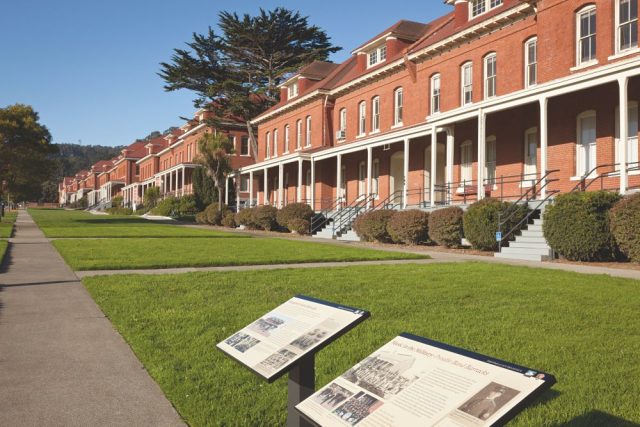By all accounts, 2023 was a difficult year for San Francisco real estate. Mortgage rates were incredibly high, and inventory was terribly low. Buyer interest seemed to evaporate. And across the nation there was incessant talk about San Francisco’s so-called inescapable doom loop.
This year has to be better, right? It’s still early, but so far, so good.
SFGate.com reported that there has been a significant shift in the city’s real estate market. Even older listings are beginning to heat up. In January and February, some properties that couldn’t sell last year were suddenly getting offers.
The California Association of Realtors forecasts that home sales in the state will increase by 23 percent year-over-year.
“There has been a notable increase in homes being prepared for the spring listing season,” said Annie Williams, a top agent with Sotheby’s International Realty. “Stagers, painters, and inspectors are busy again!”
She explained the timing of this advance work is strategic, and suggests sellers intend to capitalize on the traditionally active spring market — in part to avoid the potential uncertainties and disruptions often associated with a fall election season.
TECH STILL RULES
Where is all this renewed energy and interest coming from? To paraphrase one-time San Francisco resident Mark Twain, “The reports of this city’s death are greatly exaggerated.”
Indeed, The Economist published a story in mid-February explaining how San Francisco has staged a surprising comeback. The writer argues that whenever a global economic transformation takes place, a single city usually drives it forward.
For example, the first initial public offering took place in Amsterdam in 1602. London was the center of the first wave of globalization during the 19th century. And, according to the writer, today the city at the center of a global transformation is San Francisco, with artificial intelligence at the heart of this transformation.
It’s a breakthrough technology that has caused a bull market in American stocks, and which many economists believe will power a global productivity surge.
Almost all big AI players and tech investors are based here. In fact, San Francisco’s AI concentration has reached a critical mass, with success begetting further success. London and Paris may be AI rivals, but they are a long way behind.
Unlike previous tech booms, artificial intelligence may not result in waves of new tech workers coming to the city. Still, this has changed the mood of San Francisco. There is a renewed energy and excitement about the place.
A BULL MARKET
What’s more, as mentioned, the stock market did well in early 2024, with the S&P 500 breaking 5,000 for the first time in history in February.
“San Francisco’s luxury real estate market is complex, influenced by both macroeconomic conditions and local factors,” said Williams. “But I have observed over the years that our real estate market tracks the stock market quite closely, and it’s been booming lately. That gives buyers confidence and enables them to grow the size of their down payments.”
REVERSE MIGRATION
Williams added that she and other agents have noticed that a number of people are now moving to San Francisco from places like Manhattan and the upper Midwest — perhaps representing a significant change from recent outbound migration patterns.
Meanwhile, that same Economist story said despite headlines about an exodus of the rich, San Francisco’s tech elites mostly weathered the storm — its population decline was, in fact, mostly driven by the exit of poorer residents. As a result, inhabitants are now better paid and more educated than before Covid.
OFFICE SPACE INVESTING
One last item of interest: While office vacancy rates in San Francisco have recently reached new heights, according to SFGate.com, an investor is preparing to swoop in for some bargain hunting. Ian Jacobs, an heir of the Toronto-based Reichmann family, plans to spend hundreds of millions of dollars buying office space downtown.
Jacobs has reportedly spent the past year lining up financial commitments for a plan to buy 3 million square feet of property, which, based on recent building sales, implies a price tag between $600 million and $900 million. His great uncle did the same kind of thing in New York City during an economically bleak period in the late 1970s. He made a fortune once that city’s social and economic recovery was complete.
It’s a buy-low, long-game strategy that reveals a fundamental faith in San Francisco’s intrinsic value. And, while it’s still early, it’s another indication that 2024 is shaping up to be a much better year than 2023.
Comments: [email protected]




